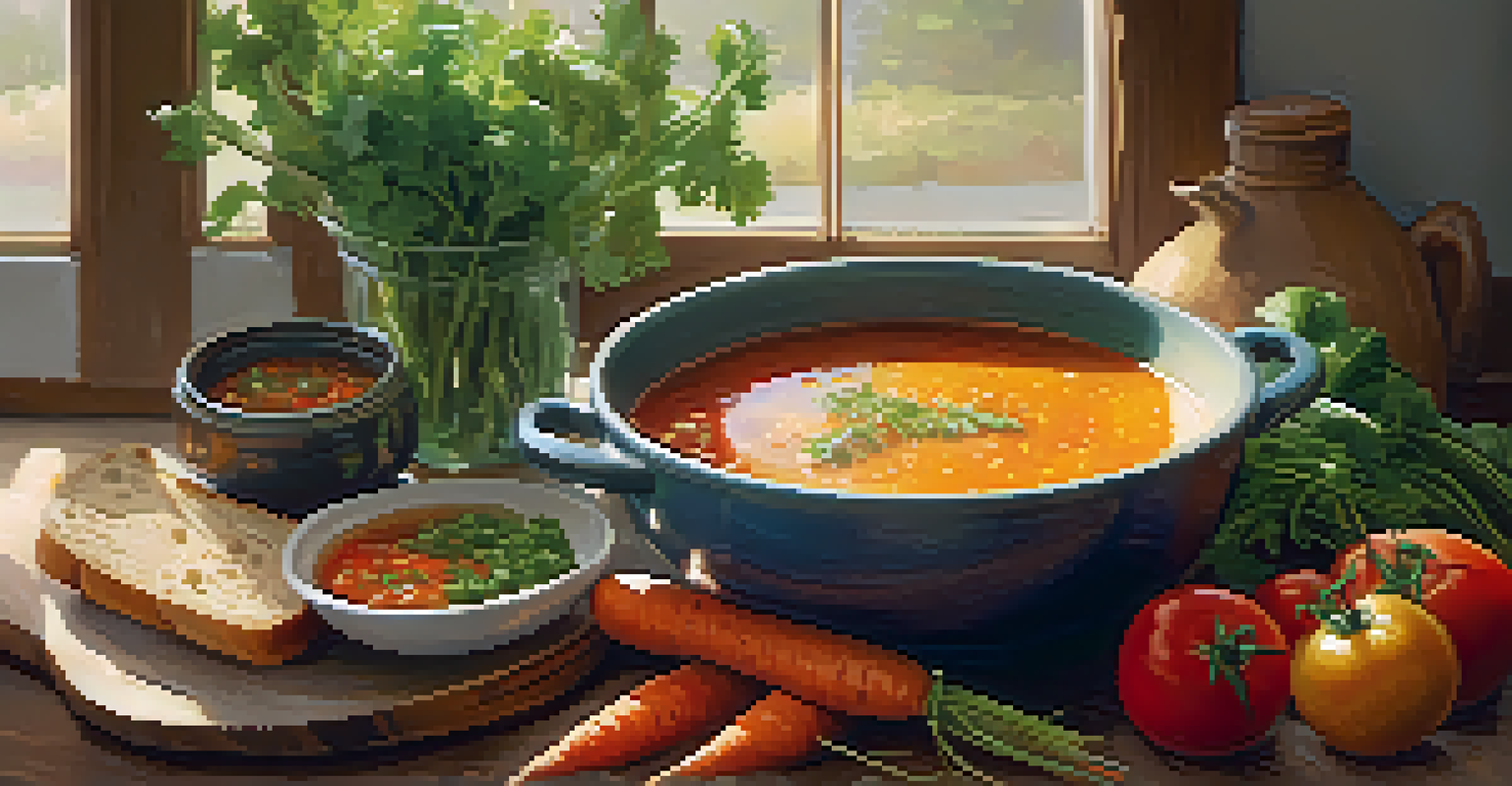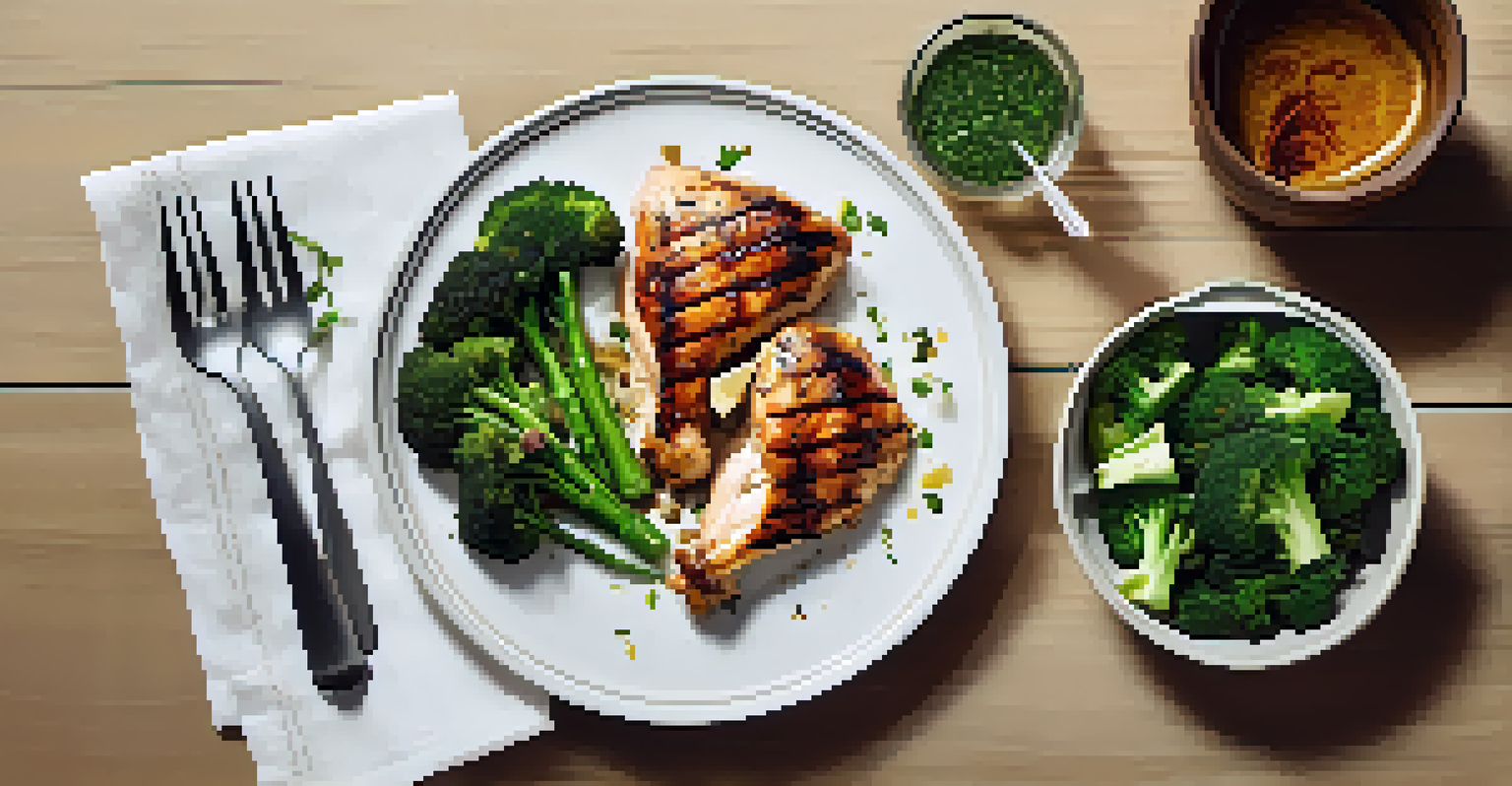Raw Foods vs. Cooked Foods: Which Gives More Energy?

Understanding Raw Foods: The Basics
Raw foods are those that haven't been cooked or processed at high temperatures. This category includes fruits, vegetables, nuts, seeds, and some grains. The primary appeal of raw foods lies in their freshness and the preservation of nutrients.
Let food be thy medicine and medicine be thy food.
Many advocates believe that consuming raw foods can lead to higher energy levels. This is because raw foods are often rich in vitamins, enzymes, and antioxidants, which can aid in digestion and overall health.
However, it's essential to note that not all nutrients are easily absorbed from raw foods. Some people may struggle with digestion or may not get enough calories from raw diets alone, which can affect energy levels.
The Benefits of Cooked Foods
Cooked foods, on the other hand, involve heating ingredients to improve taste, texture, and digestibility. Cooking can make certain nutrients more bioavailable, meaning your body can absorb them better. For instance, cooking tomatoes increases the levels of lycopene, a powerful antioxidant.

In addition to nutrient absorption, cooked foods can also enhance energy levels for many people. When food is cooked, it often becomes softer and easier to digest, which can lead to a more efficient energy release in the body.
Raw vs. Cooked: Nutrient Dynamics
Both raw and cooked foods offer unique nutrient benefits, with raw foods preserving certain vitamins while cooking enhances others.
Moreover, cooked foods can provide a warm, comforting feeling, especially in colder climates, which can contribute to overall well-being and energy levels. This psychological boost shouldn't be overlooked!
Nutrient Retention in Raw vs. Cooked Foods
One of the primary debates between raw and cooked foods involves nutrient retention. Raw foods typically retain higher levels of certain vitamins, particularly water-soluble ones like vitamin C and many B vitamins. These nutrients can be sensitive to heat and may degrade during cooking.
Eating raw food is a way to connect with the earth and nature.
Conversely, cooking can enhance the availability of some nutrients while reducing others. For example, boiling vegetables can cause a loss of water-soluble vitamins, but it can also break down cell walls, making other nutrients more accessible.
Ultimately, the balance of raw and cooked foods in your diet may be the key to maximizing nutrient intake. A varied diet that includes both can help ensure your body receives a wide array of nutrients for optimal energy levels.
Digestive Impact: Raw vs. Cooked
Digestion plays a crucial role in how energy is extracted from food. Raw foods are often high in fiber, which can promote a healthy digestive system. However, for some individuals, this high fiber content can lead to bloating or discomfort, potentially decreasing energy levels.
On the other hand, cooked foods are generally easier to digest. Cooking softens food, breaking down tough fibers and making it simpler for the body to absorb nutrients. This can lead to quicker energy release, especially for those with sensitive digestive systems.
Digestion Affects Energy Levels
The digestibility of raw versus cooked foods can significantly impact how efficiently your body extracts energy from them.
Understanding how your body reacts to raw and cooked foods is essential. Listening to your body's cues can help you find the right balance that supports your energy needs.
Energy Sources: Carbs, Proteins, and Fats
Both raw and cooked foods contain essential macronutrients: carbohydrates, proteins, and fats. Carbohydrates are often the body's primary energy source, and both raw fruits and cooked grains can provide ample carbs. However, the way these foods are prepared can influence their energy release.
Proteins are crucial for muscle repair and energy levels, and both raw and cooked sources like beans or meats can contribute to your daily intake. Yet, cooking can enhance protein digestibility, making it easier for your body to utilize these nutrients efficiently.
Fats, while calorie-dense, are also vital for sustained energy. Both raw nuts and cooked oils can provide healthy fats, but the method of preparation can affect their nutritional quality and energy delivery.
Personal Preference and Lifestyle Considerations
When it comes to choosing between raw and cooked foods, personal preference plays a significant role. Some people thrive on raw diets, feeling more energized and vibrant. Others may find that cooked meals provide comfort and satisfaction, boosting their energy levels throughout the day.
Lifestyle factors also come into play. For someone who is always on the go, quick and easy cooked meals might be more practical. Meanwhile, a person who enjoys meal prep might find joy in preparing elaborate raw food dishes and benefit from the freshness.
Personal Preference Matters
Finding the right balance between raw and cooked foods often depends on individual preferences and lifestyle needs.
Ultimately, finding what works best for your body and lifestyle is crucial. Experimenting with both raw and cooked foods can help you discover the perfect balance for your energy needs.
Conclusion: Finding Your Energy Balance
In the debate of raw foods versus cooked foods, there isn't a one-size-fits-all answer. Both types of food offer unique benefits and can contribute to your overall energy levels. Understanding how each affects your body can help you make informed choices.
Incorporating a variety of both raw and cooked foods may be the most beneficial approach. This allows you to maximize nutrient intake while ensuring easy digestion and energy availability.

Listen to your body, experiment with different foods, and find the balance that keeps you energized and feeling your best!